Blood Trail Read online
Page 6
‘I must talk to Sonto.’
‘I will find her for you, Captain, as soon as we get back.’
Sannie’s phone rang and she excused herself, climbed off the rock and walked a short distance from Nomvula to take the call. It was Sean Bourke, the head of anti-poaching for the Sabi Sand Game Reserve. She had known him for a few years, since he first started working in the reserve as a tracker dog handler. He quickly filled her in on the action on the Lion Plains property that morning.
‘We’re tracking the poacher now. We suspect he’s making a run for the perimeter fence near Killarney, probably via a new hole in the area around the old citrus farm,’ Sean said, completing his report.
‘All right. Thanks, Sean. I’m actually near there now. I’ll take a turn by the fence as well.’
She ended the call, came back to Nomvula and put her phone away and her hands on her hips. Sannie looked around her.
‘Can you feel it, Captain?’
‘Feel what?’
‘This place.’
Sannie knew, from what she had been told, that something had happened here, but she was not given to believing in the spirit world. All the same, this semi-abandoned construction site was a place where no one might hear a young girl scream. ‘I will find out what happened to your granddaughter.’
Nomvula hugged herself and looked into Sannie’s eyes. ‘You did not answer my question, but you can feel the chill. I can see it in you.’
It was, Sannie knew, most likely the power of suggestion, but she shivered nonetheless.
Chapter 5
Mia studied the ground in front of her. This was no exercise and she was not as keen and excited as she would have been if she was tracking, say, a lion.
She had picked up a clear footprint, a running shoe, near the edge of the road and it had been relatively easy to hold on to the trail until now. They were close to the Manzini Spruit, where the man had been spotted on the Vulture system.
Bongani came up beside her. ‘What do you see?’
She pointed to the flattened clump of grass, and then ahead of them. ‘He is moving, but not in the direction where he was first seen.’
‘There are two of them, maybe?’
‘I’m not sure,’ she said. ‘These tracks are fresh-fresh and we would have seen another man here, easily. I think he has moved while we were driving.’
Bongani nodded slowly. ‘A good deduction. But remember, we must not try to make the tracks fit what we believe – it must be the other way around. The tracks will tell a story, perhaps in another language, and it is up to us to translate that story, to understand it.’
He’d said the same thing to her before, and he was right.A novice tracker would find some evidence and then try to make it fit what he or she believed was a pattern, their assumption of where the quarry had gone and what it would do next. With animals it was, in fact, easy to do this and be right, but with humans, it was dangerous. A man would set out to deceive.
Mia saw a scuff mark on a rock, where the poacher had climbed over a granite boulder in his way. Perhaps he thought that by rock-hopping he could throw her off his scent.
‘Good work,’ Bongani said, noticing what she was looking at. They followed the trail over some boulders. ‘He knows we are after him. He is trying to put us off.’
Mia tried to think what she would do next.
‘Is that the dry creek bed, up ahead?’ Sara asked, catching up to them.
Mia looked up. ‘Yes. That tall leadwood tree is a giveaway.’
Sara smiled. ‘I thought so. I’m getting to know this place.’
‘Slowly, now,’ Mia said. She put a finger to her lips and Sara nodded. Bongani seemed to grip the rifle more tightly, judging by his knuckles. There was something about his eyes, as well. It was as though he was nervous, and Mia could not recall ever seeing him afraid of anything. Mia led the way.
She picked up the trail again, and it led to the edge of the dry stream. She could see where the poacher had half slid, half run down the bank to the sandy bed. Mia knelt and took a closer look as Bongani and Sara closed up on her.
‘He went down here, but look,’ she pointed to another set of scuff marks in parallel, but going back up the bank, ‘he’s exited here again at the same place. Sloppy work.’
‘Those tracks look fresh,’ Sara said.
‘Yes.’ Mia stood and scanned the bush. ‘We can catch him. Graham thought he must have cached his rifle somewhere.’
Heavy-calibre hunting rifles were hard to come by, Mia knew, and poachers sometimes resorted to violent raids on farms to get hold of them – reasoning that an isolated farmer would be more likely to have a rifle than anyone else. If they caught this man they could always come back with a dog trained to sniff out ammunition and firearms and look for the weapon.
‘All right,’ said Mia, as it seemed she was the one calling the shots, ‘we follow him, but once we have him in sight we tail him, without him knowing, and we call in Sean and his guys. Agreed?’
Both Bongani and Sara nodded.
‘That sounds like fun,’ Sara said.
Mia frowned, quietly fuming. ‘Tracking a man is not “fun”. It’s dangerous work and he still may be armed.’
‘Sorry,’ Sara said.
‘OK.’ Mia checked the ground again then looked up. Surprised, she had to stop herself from crying out in alarm. She could see a man, much closer than she expected, and he was carrying something cradled in his arms. ‘Shit.’
*
Mia’s phone vibrated in her pocket. It was a message from the Vulture control room, from Audrey Uren, Julianne Clyde-Smith’s personal assistant, who, like many of the lodge’s support staff, had been trained to operate the monitoring system. Audrey and Alison Byrne, the British-born lodge manager, had relieved Graham and Oscar.
Lost sight of target. We think he has gone into the drainage line of the spruit. Radar and cameras having trouble picking him up.
That made sense, Mia thought. She wondered if someone at the lodge had been leaking details about the system. It seemed this poacher knew how to evade the electronic gadgetry. It was proof that poachers were clever and that technology, while useful, had its limitations.
Mia tapped out a message: Copy. We have visual on him now.
Roger, Audrey replied. Mia smiled to herself – she knew Audrey loved working on the system as it gave her a break from her more mundane day-to-day work and made her feel like she was playing a role in the war on poaching.
Mia knew that there were other sensors and hidden cameras in and around the reserve and along its perimeter fence that would, hopefully, pick up the man on his way home, if they lost him. For now, she was locked onto his trail. He was making no attempts to cover his tracks, and every now and then they caught sight of him. He was wearing a pair of running shoes, quite new judging by the crisp tread pattern and logo and brand name she could occasionally pick up in the dust.
He was moving carelessly, and did not seem to be looking behind him at all. Each time Mia glimpsed him she went to ground, but their target trudged on. He was not swinging his arms because of whatever it was that he was carrying, and she could see no sign of the rifle that Graham had spotted earlier.
Mia thought more about the rifle. She knew that poachers sometimes used take-down rifles – weapons that could be disassembled into two pieces, but this man was not wearing a backpack or satchel in which to hide a rifle.
She’d read about poachers in Zimbabwe who cached AK-47s in game reserves, for good reason. In that country if a person was seen carrying a weapon in a national park or game reserve they could be shot dead on sight. In South Africa there was no such law and anti-poaching rangers, police and military operators could technically only fire in self-defence. It was, she thought, a technicality that was very much open to interpretation, but to the best of her knowledge Sean Bourke was a strictly la
w-abiding commander who instructed his rangers to treat any poacher firmly, but fairly. She did not think he was the shoot-on-sight type.
The man stopped.
Mia waved her hand, signalling the others to stop. She looked over her shoulder, and once she saw they were settled she showed them an open palm, telling them to stay where they were. She crept forward, keeping a stout jackalberry tree between her and her quarry.
The man appeared to be checking his directions, standing still in the open, the bundle still in his arms. The sun had climbed high now and she got her first good look at him. He was, she saw, a young man, not much more than a boy, long legs and thin arms and a body not fully filled out. When he looked her way, not at her but in the general direction, she took a sharp breath.
Sipho, she said to herself. She was surprised.
Mia knew the boy – she had gone to school with his older sister, who now worked in Johannesburg as a hairdresser. Sipho was a promising student, who had been raised by his grandparents until they passed away. The old man had been a hunter in his day – or, depending on the lens he was viewed through, a poacher – but he had seemed honest to Mia other than that. Sipho now lived alone, except for a large collection of snakes and other reptiles that had given birth to his nickname, ‘the Snake Boy of Killarney’.
She brought her radio up to her mouth. ‘Sean, Mia, over?’
After a few moments he replied. ‘Go, Mia.’
‘I’ve got our man in sight. He’s a kid. No weapon, over.’
‘We still need to arrest him, over.’
Who, me? she wanted to reply. ‘I’ll keep him in sight until you can send someone, or intercept him at the fence, over.’
‘Affirmative, thanks Mia,’ Sean replied.
Sean had his hands full this morning, but he seemed calm. Mia knew Sean had served in Afghanistan, and had an impressive record in catching poachers and running the reserve’s security – until recently.
Sipho turned around and Mia could see, for the first time, what he was carrying. A pangolin.
‘Shit,’ she whispered. She had been toying with the idea of turning a blind eye to the boy and letting him go. The last thing he needed was a criminal record – growing up where and when he had, he was already at a disadvantage – but she could not let him get away with a pangolin.
She was about to tell the others when they all heard a bang, from behind them.
‘That was a gunshot,’ Sara said, cocking her head.
Bongani nodded. ‘Heavy calibre.’
‘Sean, Sean, this is Mia,’ she said into her walkie-talkie. ‘We’ve got gunfire . . .’ There was another loud crack. ‘Two shots, southwest of our position.’
‘Roger,’ Sean said.
‘I’m heading there now,’ Mia said. ‘We’re going back to our vehicle.’
‘What about your suspect, over?’ Sean asked.
The others had both turned and started jogging to the Land Rover. ‘He’s . . . a kid, though he’s got a pangolin,’ Mia panted. ‘I think I can ID him. I’ll . . . follow up with him later.’
‘OK,’ Sean said. ‘He may have been a decoy all along for the real shooter.’
‘Affirmative,’ Mia said. The same thought had just crossed her mind, yet the Vulture system had only been able to pick up one person earlier. Something funny was going on this morning. Mia paused to call Audrey, but the signal was disappearing.
‘Mia . . . can you hear me?’ Audrey said into the phone. ‘I got a glimpse of a second man, and this one has a rifle! I’ve lost him, but I last saw him heading back towards the dry riverbed, where we first saw him go to ground.’
‘Just one man; I mean, he’s moving by himself?’ Mia asked.
‘Yes, one man, but you’re breaking up. Also we can see a baby rhino running around by itself and . . .’
Mia swore to herself again and resumed running. ‘Send me the coordinates off the computer screen.’
‘Losing you,’ Audrey said. ‘Can’t hear you.’
They reached the Land Rover and Mia and Sara climbed aboard. Bongani sat in the tracker’s seat again, but this time he kept the rifle cradled across his knees. They would never have driven like this with guests on board, but there was at least one armed man out there somewhere.
Mia felt a shift within her. She had been raised, in no small part, by the same community that Sipho and Bongani were from. It was quite possible that she knew the shooter they were now chasing. She had begun the morning not wanting to do the anti-poaching rangers’ job, of tracking down a human being, but the blood lust was coursing through her body now. She felt as much of a kinship with the animals of this reserve as she did with the people in the surrounding communities.
Mia was about to use the Land Rover’s radio to call Audrey again when Bongani signalled for her to stop and pointed to the ground. Mia rose in her seat and, peering over the front of the vehicle, picked up the tracks of the rhino cow and her calf.
She turned to Sara, sitting behind her. ‘Hold on.’
Mia swung the steering wheel and the Land Rover bounced on its coil springs as they left the graded surface. Thorny branches whipped the side of the truck and there was a loud crack as Mia drove over and split a dead branch. She turned fast and confidently to navigate around a termite mound.
Bongani’s tracking skill was as good as any GPS and Mia barely needed to check that they were still on course. He held up his hand and closed it into a fist. Mia pulled to a stop and switched off the engine.
They heard a high-pitched whining, bleating noise and it pierced Mia’s heart as surely and as keenly as a blade.
‘What the hell is that?’ Sara asked.
Mia opened her door and got out of the Land Rover. ‘Baby rhino, calling for its mother.’
Bongani climbed down from his seat and led them through the bush. Sara raced to keep up with them. The noise became louder.
Mia pushed through the branches and leaves that scratched her bare forearms and hooked her green shirt, ignoring the blood. She came to a clearing. It had been done quickly, the poacher not even bothering to cover the carcass. The poacher knew they were out here, looking for him and his suspected accomplice, Sipho.
She knelt by the dead female rhino and touched her fingers to the wound. ‘Clean shot, to the heart. At least she didn’t suffer.’
‘But the horn’s still attached,’ Sara said. She stood over the dead animal, put her hand over her mouth and started to cry.
Bongani cast around the scene, walking in a circle, looking for spoor. The baby rhino emerged from the bush, took a look at them, bleated some more, then retreated away from them. Mia knew it would not go far from the body of its mother.
‘We have disturbed the poacher. He will be close. We must find him,’ Bongani said, his voice dispassionate, businesslike, ‘now.’
Mia looked up at him. Once more she found herself in the same quandary. She wanted to get the bastard who had done this, but he was armed and they had a volunteer with them.
‘Let’s go,’ Sara said.
Mia stood, wiping the blood from her fingers on her shorts. ‘We know this one is armed.’
‘So are we,’ Sara said.
‘The tracks lead back to the road,’ Bongani said.
Mia nodded. ‘We’ll drive there. Sara, you can stay with the Land Rover. The vets will need to come and dart the baby, to rescue it and take it to one of the rhino orphanages. You can help them, lead them to the carcass.’
Sara put her hands on her hips and shook her head. ‘No.’
‘It’s important and will be a great experience for you,’ Mia said, trying to sound kindly. This was what these volunteers wanted, to save wildlife, to take home memories they could show off to their friends like souvenirs, before they drifted into their corporate jobs and safe, first-world lives.
Sara pointed at the de
ad rhino. ‘I want to catch the bastard who did this.’
‘That’s not our job, Sara.’
‘I know it isn’t, but don’t tell me you’re not angry about this.’
Mia sighed. ‘Of course I’m angry, but that’s not a good mood to be in if you’re tracking a man with a gun.’
‘You’re good at your job, Mia. You need to get off the fence, get some skin in the game, as the Americans always say. You can follow this guy.’ Sara looked to Bongani. ‘What do you think?’
Bongani shrugged. ‘I work with Mia, she is my partner, not you. These men who poach, they are dangerous, and this one is lone, like a dagga boy, an old buffalo bull. That either means he is tough and clever – to come out here and track by himself, without a protection man with an AK-47 – or crazy. In either case, we do not want to corner him.’
Sara continued to stare at him. ‘You people are scared.’
Mia glanced at Bongani, whose face was impassive for a few seconds, and then he spat on the ground. The insult meant little to Mia. Sara didn’t understand the dangers involved, and like too many people from western countries, she was impatient.
Mia looked to Bongani. ‘What do you think?’ she asked in Xitsonga.
‘Ignore this woman,’ he said to her in their shared language. ‘Think what is best for the reserve, and for this rhino. It is dead. This man has bested us.’
Mia gave a small nod. Julianne was fiercely protective of her rhinos and both Bongani and Mia felt the loss as keenly as Sara, even if they didn’t show it. And Bongani was right, this poacher had got the better of them and that did not sit well with either of them.
Mia was shorter than Sara, but she squared up to the other woman and jutted her chin forward. ‘You stay behind us, and you do not say a word. If there is trouble your job is to run – and I mean run – back to the Land Rover as soon as it goes down. Understood?’
Sara looked like she might answer back, but Mia held her stare and Sara backed down, giving a small nod. ‘I understand.’
‘We find him and we fix him,’ Mia said to both of them, ‘and we wait for the cavalry. No stupid heroics.’

 The Cull
The Cull Blood Trail
Blood Trail Red Earth
Red Earth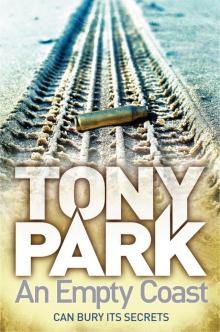 An Empty Coast
An Empty Coast Dark Heart
Dark Heart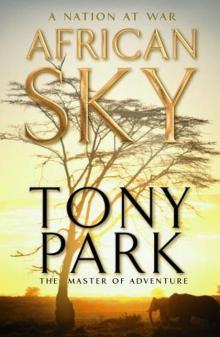 African Sky
African Sky The Delta
The Delta Captive
Captive Ivory
Ivory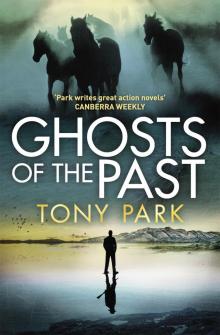 Ghosts of the Past
Ghosts of the Past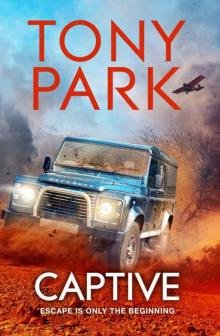 Captive_A High-octane And Gripping African Thriller
Captive_A High-octane And Gripping African Thriller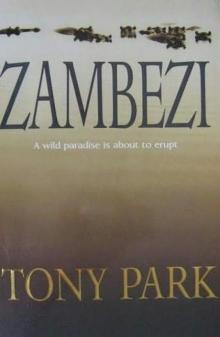 Zambezi
Zambezi Silent Predator
Silent Predator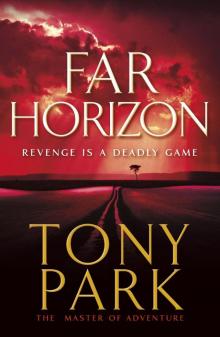 Far Horizon
Far Horizon African Dawn
African Dawn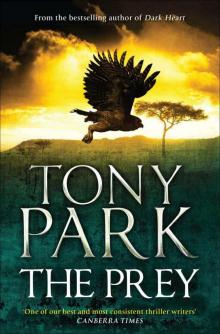 The Prey
The Prey Safari
Safari